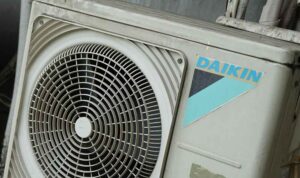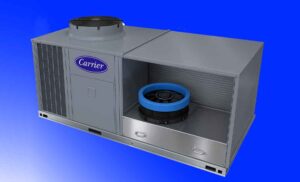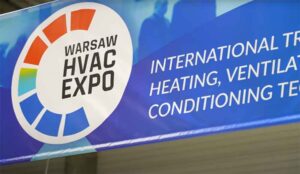Significant reduction in atmospheric HCFCs
11th June 2024
UK: A new study reports a significant reduction in the atmospheric levels of ozone-depleting HCFCs, the most abundant of which is the former refrigeration and air conditioning refrigerant HCFC22.
The findings of the international study, led by the University of Bristol and published today in Nature Climate Change, show the total amount of ozone depleting chlorine contained in all HCFCs peaked in 2021. Because these compounds are also potent greenhouse gases, their contribution to climate change also peaked in that year. This maximum occurred five years before the most recent predictions. Although the drop between 2021 and 2023 was less than 1%, it still shows HCFC emissions are heading in the right direction.
HCFCs were originally developed as replacements for CFCs, which have been banned from production globally since 2010 under the Montreal Protocol.
HCFC22, the most abundant HCFC in the atmosphere, has a global warming potential 1,910 times that of carbon dioxide on a 100 -year time horizon. A phaseout of the production and consumption of HCFCs under the Montreal Protocol will be completed globally by 2040.
The results of the latest study rely on high-precision measurements at globally distributed atmospheric observatories, using data from the Advanced Global Atmospheric Gases Experiment (AGAGE) and the National Atmospheric and Oceanic Administration (NOAA). It shows that the global direct radiative forcing and equivalent effective chlorine (EECl), which represents the globally averaged chlorine content of ODSs in the troposphere of HCFCs, have fallen between 2021 and 2023. Projections suggest that HCFCs will return to their 1980 values in 2082 for radiative forcing and in 2087 for EECl.
However, while production and consumption of HCFCs are being phased out under the Montreal Protocol, their emissions to the atmosphere are not directly controlled. The study authors warn that leakage of HCFCs from appliances and foams will continue over the product lifetimes, contributing to radiative forcing and EECl, unless efforts are made to reclaim the HCFCs before their eventual release to the atmosphere. Furthermore, the use of HCFCs as feedstock for the production of other chemicals, such as HFCs, is expected to continue long into the future.
Commenting on the study, the Environmental Investigation Agency’s climate campaign director Avipsa Mahapatra said: “The decline in HCFCs is certainly a cause for celebration. However, we can not afford to rest on our laurels and remember that HCFCs are still being released during the disposal of older appliances and through their use in chemical manufacturing. It is crucial to maintain and strengthen investment in the Montreal Protocol so we don’t jeopardise this success.”







